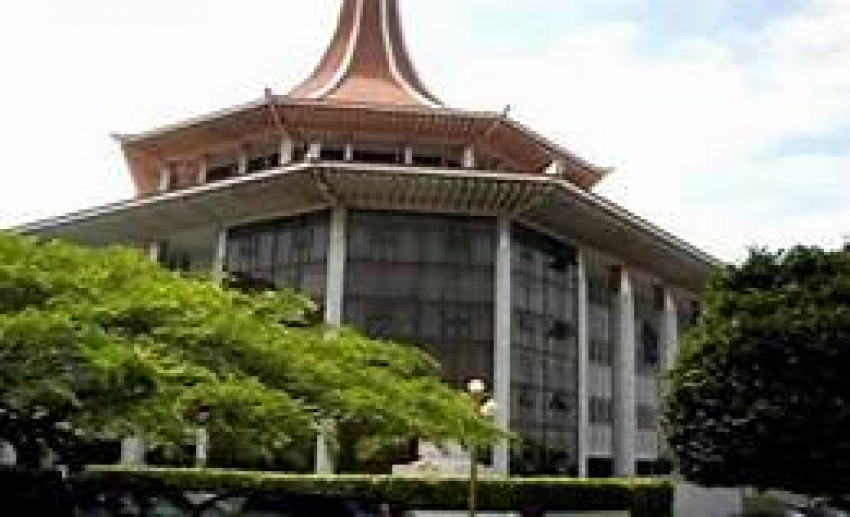Meanwhile, the Supreme Court further extended the Interim Order staying the operation of the Gazette notification issued by the President to dissolve Parliament until the date of judgement to be delivered in due course.The Supreme Court seven-judge-Bench comprising Chief Justice Nalin Perera, Justice Buwaneka Aluvihare, Justice Sisira de Abrew, Justice Priyantha Jayawardena, Justice Prasanna Jayawardena, Justice Vijith Malalgoda and Justice Murdu Fernando further extended the Interim Order restraining the Election Commission from proceeding to take any steps to conduct the Parliamentary Election by virtue of the proclamation until the judgment date.
The petitioners, respondents and intervenient petitioners concluded their submissions which were proceeded for a four-day period since last Tuesday (04).These Fundamental Rights petitions had been filed in the Supreme Court by several political parties and individuals seeking an Interim Order to stay the operation of President’s proclamation to dissolve parliament which published in the Gazette Extraordinary.
These petitions had been filed through Tamil National Alliance leader R.Sampanthan, UNP General Secretary Kabir Hashim, JVP leader Anura Kumara Dissanayake, Sri Lanka Muslim Congress leader Rauf Hakeem, All Ceylon Makkal Congress party leader Rishad Bathiudeen,R.A.S.D. Perera, Prof. S. Ratnajeevan H. Hoole, former MP Mano Ganeshan, Attorney-at-law Lal Wijenayake and G.C.J. Perera.
President’s Counsel K.Kanag Iswaran appearing for Tamil National Alliance leader R.Sambanthan informed the Supreme Court that official acts of President are considered as executive acts and thereby President’s decision can be challenged through the Fundamental Rights petitions.At a previous occasion, the Attorney General stated; “The provisions of Article 38 (2) provide a specific mechanism ‘for the Supreme Court to exercise jurisdiction over allegations of, intentional violations of the Constitution, misconduct or abuse of power by the President.
“Dissolution of Parliament by the President, does not constitute ‘executive or administrative action’, falling within the purview of Article 126 of the Constitution.’Kanag Iswaran said that the objection premised on Article 38 (2) is concerned, it is clear that the said objection is based on the supposition that Article 38 (2) operates as an ouster of Articles 17 and 126 vis-à-vis the Fundamental Rights Jurisdiction of the Supreme Court.
He argued that one section of the Constitution cannot oust another section of the Constitution.President’s Counsel M.A.Sumanthiran stated that all three languages of the constitution (Sinhala, English and Tamil) should be looked at to prevent confusion.The Petitioners state that upon the Proclamation being published the petitioners were of the view that the proclamation dissolving Parliament was unconstitutional and illegal.
They sought a declaration that the Fundamental Rights of the petitioners guaranteed under Article 12(1), 14(1(g) of the constitution is infringed by the petitioners.President’s Counsel K. Kanag-Iswaran with M.A. Sumanthiran PC, Thilak Marapana PC, C.J. Weliamuna PC, Dr. Jayampathi Wickremaratne PC, counsel H. Hizbullah, Counsel Suren Fernando and Manjula Balasuriya appeared for the petitioners.
Attorney General Jayantha Jayasuriya PC, Solicitor General Dappula De Livera, Additional Solicitor General Indika Demuni de Silva PC, Nerin Pulle DSG, Dr. Avanthi Perera SSC appeared for the Attorney General.President’s Counsel Gamini Marapana, Manohara de Silva PC, Sanjeewa Jayawardena PC, Ali Sabry PC, Senior Counsel Kanishka Vitharana and counsel Navin Marapana appeared for the intervenient petitioners.





















